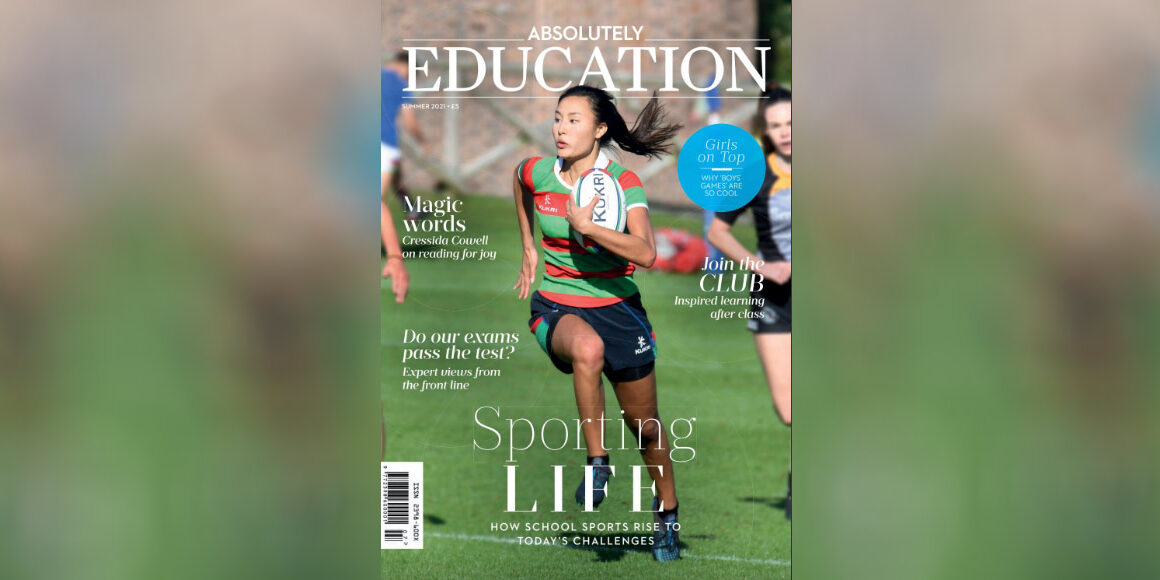1. Our two sons are close in age and also very competitive. Teachers have suggested it might be a good idea to choose separate senior schools so they each thrive as individuals. Can your school placement team advise on what we need to consider in making the decision and the pros and cons of splitting them up?
Answered by Anastasia Hatvany, Senior Education Consultant and SEN Specialist
It is lovely for siblings to have a ‘shared education’, being able to reminisce over the breakfast table about the funny mannerisms of the Latin teacher, or the quality of the food in the canteen, but unfortunately sometimes the same school is not the right option. Children have a great sense of identity and fundamental ‘fairness’, meaning that rivalry can easily be started when one may be performing better than the other academically (or socially). This is obviously not healthy and should be avoided to the best of everyone’s ability.
When choosing different schools for siblings, it is important that parents keep in mind that it should be a considered and sensitive decision. It is imperative to analyse the schools properly, so that both are on level ground to avoid any potential issues of unfairness that might arise.
For instance, if one school has family ties — perhaps a parent or grandparent attended — but the other does not, it would be perhaps best to avoid.
Logistics are another factor to keep in mind. The first person your sons will look for when they score a try or take a bow is you, so it is important that both schools are within similar distance to home so that one can easily get there. This is also something to keep in mind if you are looking at boarding: you do not want one son feeling that he has been sent further away than his brother and therefore sees you less.
I would advise that you try to make sure that both schools are also on a similar level regarding academics, sport, drama, and co-curricular activities. Children should be proud of their school. If a child is happy, they are confident, and when confident they will thrive as an individual and reach their academic potential.
2. I’ve been told that as my daughter wants to attend a UK independent school, it would be a good idea to take UKiset so her knowledge and potential can be accurately assessed. Can you explain more about the UKiset process and how schools use it?
Answered by Xanthe Lynden, Assessment Manager
The UK Independent School Entry Test (UKiset), is a standardised assessment that effectively compares international students with their counterparts who have been in the British curriculum all their lives. As well as helping schools understand a student’s level of English, the resulting report generated by the assessment provides credible information on how a student like your daughter may perform within the school environment, as well as her aptitude for certain subjects.
Many people like UKiset as the process is a relatively simple one. Registration is quick and easy, and once the test has been taken, students can choose to send their report to up to 5 different British independent schools (or if they prefer, to none at all).
As well as having test centres across the globe, UKiset are now offering online invigilation, meaning that your daughter can take the test without having to organise travel, which of course has been made difficult due to the pandemic.
Note that there is more to the UKiset than just testing a student’s aptitude. When preparing to take the test, your daughter will learn valuable skills which will help ready her for other school entrance exams, as well as give her those skills required for academic success in the independent school system.
It is important to remember that each school will have different requirements and benchmarks for their applicants, however it is undoubtable that a UKiset report will only serve to strengthen your daughter’s applications. It will also give you a good insight as to where she is at currently in her academic career, which give you the chance to help her improve in any areas needed.
At Gabbitas we have recently launched our accredited UKiset Prep service, if you’d like to find out more, please don’t hesitate to contact me via info@gabbitas.com
 3. My daughter is unhappy at school and this is now reflected in her behaviour and progress. We’re looking to move her but are concerned about how current school reports will impact future school choices. How best should we go about finding a school where she will be welcomed and also have a chance to thrive?
3. My daughter is unhappy at school and this is now reflected in her behaviour and progress. We’re looking to move her but are concerned about how current school reports will impact future school choices. How best should we go about finding a school where she will be welcomed and also have a chance to thrive?
Answered by Paul Kelly, Senior Education Consultant
Unfavourable school reports are an issue that many parents face, and it can be daunting to get to the bottom of the reasons why. It is especially frustrating when they can interfere with attempts to enter a new school, where one’s child may perform better. It is important to treat this as an opportunity to use the problem to your advantage, and consequently help your daughter achieve her academic potential whilst also being happy.
My advice is to first talk to your daughter in an effort to establish why this is happening. Tell her that you recognise that she is unhappy, and you are thinking of changing her school. It could encourage her to talk about the issues she faces. Knowing these issues is beneficial for you too, as it will allow you to approach new schools more easily.
In some cases, it can be better to get an objective outsider — such as a family friend or education consultant — to talk to her, as conversations between parent and child, especially relating to this subject matter, can be emotionally charged and therefore inconclusive.
Regarding finding the best school for your daughter, you should undoubtedly look for somewhere with great pastoral care, as your daughter may be entering at an unusual point of entry. It’s also a case of analysing current issues; is the current school boarding? Maybe try looking at Day schools closer to home. Is it a big school? Perhaps your daughter may prefer a smaller, more intimate learning space.
Think about her subjects. If your daughter is sitting her A-levels, schools understand that sometimes the wrong subjects are chosen, or perhaps she might be better suited to the IB? If she is studying GCSEs, there may be a subject she is more passionate about — use this to your advantage when approaching schools.
Approaching the next school can be a tricky process, so if you’d like some impartial advice on next steps or help liaising with schools, please contact us at info@gabbitas.com.
This article was originally published in the Summer 2021 edition of Absolutely Education


